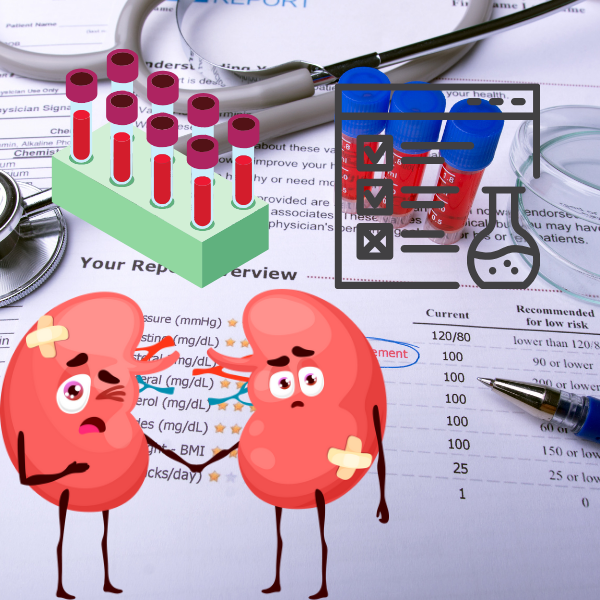+90 533 813 89 77
info@bookingforhealth.com

Kidney Function Test: 5 Blissful Surprises
In this artice you will get some information about Kidney Function Test.
What is Kidney Function Test?
Optimal well-being relies on the kidneys’ crucial function of filtering waste, excess fluids, and electrolytes from the blood to create urine. Healthcare experts employ Kidney Function Tests (KFT) to evaluate the health and efficiency of these vital organs. Explore the significance of KFT for a comprehensive understanding of your kidney health.
Blood Urea Nitrogen (BUN)
BUN measures the nitrogen content in the blood derived from urea, a waste product generated by the liver during protein breakdown. Elevated BUN levels could signal impaired kidney function, dehydration, or other conditions affecting renal health.
Serum Creatinine
Creatinine, a byproduct of muscle metabolism, is filtered by the kidneys. Elevated creatinine levels indicate potential renal impairment. Serum creatinine is a crucial indicator used to estimate the Glomerular Filtration Rate (GFR), providing insights into the efficiency of kidney waste filtration.
Glomerular Filtration Rate (GFR)
GFR, a calculated metric based on factors like serum creatinine, age, and sex, offers an estimate of kidney blood filtration efficiency. A lower GFR may signify reduced kidney function, serving as a vital parameter for chronic kidney disease (CKD) staging.
Urinalysis
Urinalysis involves scrutinizing a urine sample for various factors, including protein, blood cells, and other substances. Irregularities in urine composition may point to kidney disease, urinary tract infections, or related issues.
Creatinine Clearance Test
This test entails collecting a 24-hour urine sample and a blood sample to measure creatinine levels in both. By comparing creatinine levels, healthcare providers can calculate the rate at which the kidneys clear creatinine, offering additional insights into renal function.
Electrolyte Levels
Kidneys play a crucial role in balancing electrolytes like sodium, potassium, and chloride. Deviations in blood electrolyte levels may indicate kidney dysfunction.
Cystatin C Test
Cystatin C, a protein produced by cells throughout the body, serves as an alternative to creatinine for estimating GFR. In specific situations, this blood test may offer more accurate insights into renal health.

Routine kidney function tests are crucial for early identification of potential renal issues, especially given the silent progression of many kidney diseases without apparent symptoms. Individuals with diabetes, hypertension, or a family history of kidney disease should prioritize these tests to proactively manage their health. Stay ahead of potential problems with regular kidney function testing.



